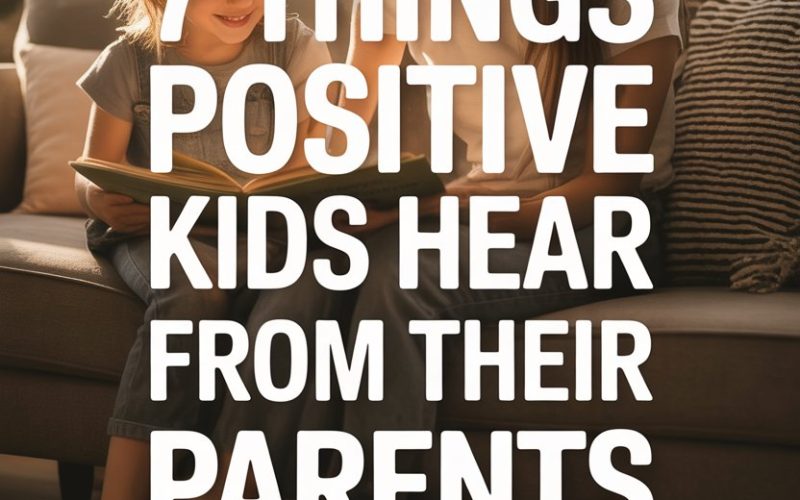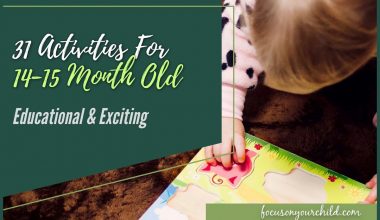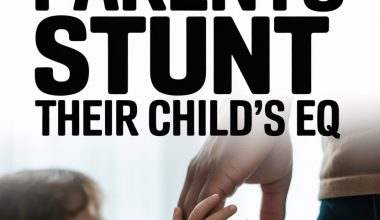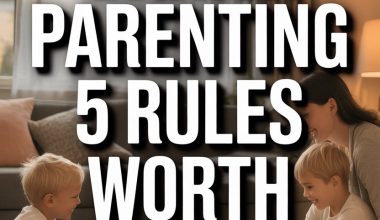Ever eavesdropped on those rare, magical families at the park—the ones where the kids don’t bite each other and everyone’s shoes are actually on the right feet? Turns out, it’s not just sorcery or a secret stash of organic kale.
Often, it’s the things those parents say, day after day, that plant the real seeds of confidence, kindness, and resilience.
Curious what phrases make all the difference?
Here are the seven daily utterances positive kids hear from their parents (besides, “Is that toothpaste in your hair?”).
1. I love you, no matter what
Tiny humans have an uncanny way of testing boundaries—and parental patience. From the “wall mural” phase (crayons, anyone?) to the “let’s see if mum notices I’m wearing odd socks” era, kids are relentless in their experiments.
But what stands out in families with emotionally healthy children is the unshakable message that love isn’t performance-based. “I love you, no matter what” isn’t just a phrase; it’s an anchor.
Research from the Child & Family Blog highlights how unconditional love protects children from anxiety and boosts their social skills. It tells them, “You can mess up, but you’ll never mess up so badly that you lose me.”
Even on days when you’re scraping dried Weetabix off the sofa, find a way to say it. Write it in a lunchbox note, whisper it before bed, shout it over the racket of the blender—just don’t let a day slide by without it.
2. I’m proud of you for trying
Gold stars for effort, not just for achievement? Yes, please.
When parents notice the process—how a child stuck at a wobbly drawing or bravely tried broccoli for the tenth time—they’re training kids to value persistence over perfection.
Dr. Carol Dweck’s growth mindset research proves it: children who hear praise for effort (“You worked hard on that puzzle!”) develop resilience and are more likely to tackle tough challenges.
It’s the difference between a child who gives up at the first hint of difficulty and one who says, “Maybe I’ll get it on the next go.”
Leave out the over-the-top theatrics. A simple “I’m proud of you for trying, even though it was tricky” sends all the right messages—and doesn’t require a full marching band in the living room.
3. You can talk to me about anything
There’s a reason kids with supportive parents confide about scary dreams, playground drama, or why they believe the cat is plotting against them.
When parents keep the door open for honest conversation, children learn that feelings—even gnarly, embarrassing ones—are safe to share.
Clinical psychologist Dr. Laura Markham suggests that kids who feel heard at home are less likely to hide important information as they get older.
The trick? Respond without making the “parent face”—you know the one: half-terrified, half-trying-not-to-laugh.
Even when you’re knackered or knee-deep in laundry, try “You can talk to me about anything, okay?”
It sets the tone from toddlerhood to teens. (And yes, sometimes you’ll get more information than you bargained for. Consider this a heads-up.)
4. Mistakes are part of learning
It’s a universal law: If you wear white trousers, your child will spill Ribena.
But when mistakes happen—spilled drinks, forgotten homework, or epic faceplants off the playground slide—positive parents resist the urge to swoop in with blame or shame.
Instead, they normalize failure. “Mistakes are part of learning” becomes a family mantra.
Psychologists at Harvard Graduate School of Education report that embracing errors boosts problem-solving skills and resilience. It tells kids, “Everyone messes up, and that’s how we get better.”
Try swapping “Why did you do that?” for “What can we try next time?” Your child just might surprise you with their own pint-sized wisdom.
5. I hear you and your feelings matter
Big feelings sometimes arrive with all the subtlety of a marching band. Tantrums, slammed doors, crocodile tears—kids aren’t known for their emotional restraint.
But when parents listen—really listen—children learn emotional intelligence and self-regulation.
Saying “I hear you and your feelings matter” doesn’t mean you have to agree with the drama over the blue cup being in the dishwasher. It means you’re validating the emotion, not necessarily the behaviour.
According to the Center on the Developing Child at Harvard, children whose feelings are acknowledged have stronger coping skills and healthier relationships.
Sometimes, all it takes is kneeling down, looking your child in the eye, and admitting, “I get that you’re upset. That’s tough.”
Chocolate helps, too. But mostly it’s the listening.
6. You make a difference
No one wants to feel like a background extra in their own family sitcom.
When parents point out the unique ways their child contributes—setting the table, helping a sibling, even the world’s wonkiest handmade card—kids grow up knowing they matter.
Pediatricians at Raising Children Network explain that recognition fosters self-worth and a sense of responsibility. It’s not about gushing or spoiling, but about quietly reminding children that their actions count.
Try “That was so thoughtful when you shared your crisps” or “You made your sister smile today.” Watch what happens when children realize their small acts have a big impact. (Spoiler: they’ll probably beam. And possibly negotiate for more crisps.)
7. I trust you to figure it out
Helicopter parenting is tempting—after all, who doesn’t want to prevent every scraped knee or misplaced lunchbox? But kids become confident, competent adults when parents step back and let them flex their problem-solving muscles.
Saying “I trust you to figure it out” doesn’t mean abandoning ship or pretending you don’t care. It means you’re close by if they need a hand, but you believe in their ability to try.
Stanford University’s research highlights that children trusted to make age-appropriate decisions develop stronger executive function and resilience.
Next time your child faces a tricky shoelace or playground conundrum, ask, “What do you think we should try?”
You might be surprised by their creativity—or at least by how many knots can fit in one pair of trainers.
Everyday Words, Lifelong Impact
The truth is, none of this requires expensive toys, color-coded chore charts, or the parenting stamina of a caffeine-fuelled superhero.
It starts with daily, ordinary words—spoken during car rides, over burnt toast, or while refereeing sibling standoffs.
Whether you’ve managed a calm, craft-filled afternoon or everyone’s had a meltdown before breakfast, these phrases create a home where children grow sturdy and self-assured. Give them a try tonight.
You might just hear the best phrase of all in return: “Mum, you’re the best.” (Or, more realistically, “Can I have a snack?” But that’s love too.)





